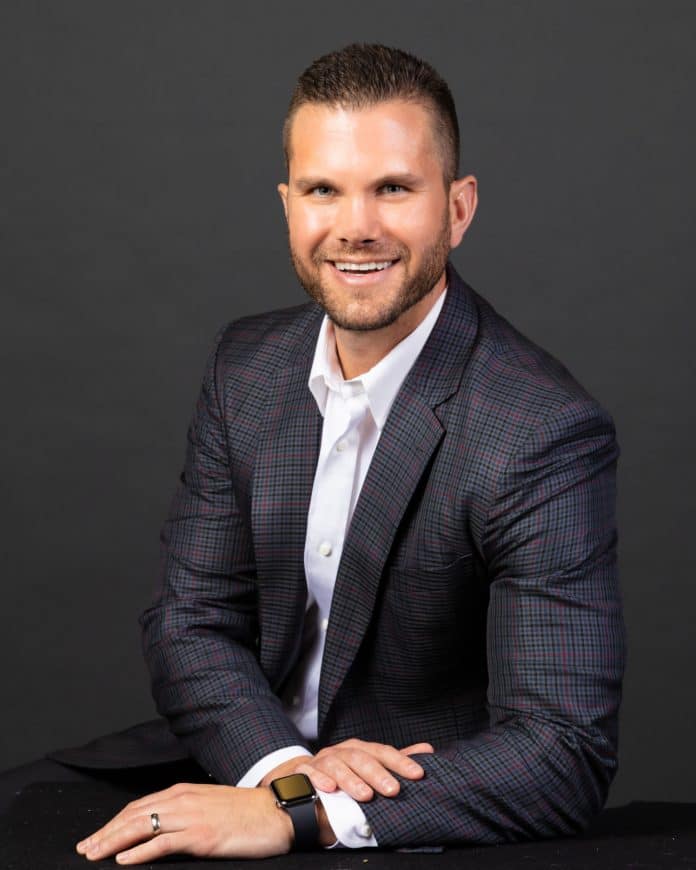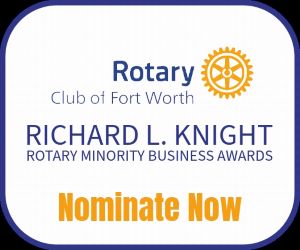John Wright of Simple Leadership Strategies in Fort Worth is interviewing individuals in top leadership roles in the area.
He recently shared his interview with Ryan Vinson, CEO and co-founder of both MineralWare and Energy Domain, two companies that have applied new technologies to the oil and gas industry.
Vinson was previously head of Oil & Gas Advisory at Bessemer Trust, in charge of managing mineral, royalty and non-operated working interests for wealthy clients with interests in more than 2,300 wells located across 17 states. Prior to that, Vinson provided land management, acquisition and divestiture services in aggregate of over $1 billion for independent and major exploration and production companies.
Vinson earned a B.A. degree in Energy Commerce and Petroleum Land Management with Honors from Texas Tech University. He then earned a master’s degree in Natural Resource Law Studies in Oil & Gas Law and Energy Law from University of Denver Sturm College of Law. Vinson is an active Certified Professional Landman. He is a member of National Association of Royalty Owners, American Association of Professional Landmen, Dallas Association of Petroleum Landmen, Fort Worth Association of Petroleum Landmen, ADAM Energy Forum, and Petroleum Engineers Club of Dallas. He has also served on the Board of Directors for the John W. Nick Male Breast Cancer Foundation.
Is it possible to be a very effective manager but still be a poor leader and also a good leader but a poor manager?
That’s a great question I might answer it in a different way than some of the folks in the past. You lead people and you manage projects, budgets, processes and contracts; but you lead people. Most people I know don’t like to be controlled or managed. So those things you can control.
There’s a definition of leadership that I like. It refers to an individual’s ability to influence, motivate and enable others to contribute toward a common goal. You influence and you shape but you do not control people. So that was the biggest difference for me. So really leadership doesn’t need a title. We have a whole company full of leaders regardless if they’re in a management position or not. I would say that’s really the two biggest differences for me.
When you try to manage people, you are essentially removing the brilliance that you hired them for in the first place. As leaders we set them up for success and let their brilliance shine and we don’t do that by managing them.
Your company is well known for a great culture. On your website it says your values are Service, Excellence, Relationships, Virtues and Enthusiasm – SERVE. How did you arrive at those five and how do you get your team to live those values?
Those are our core values and we collectively collaborated on as a team to come up with the values that we all share. We wanted something that you can remember (not just painted on the wall) and something that we all believe deep down to our core.
We liked the acronym SERVE. Service is a big differentiator between our company and the competition and we believe just as much as serving one another as we do our clients. Since we hire team members based on these values, it’s very easy for them to live by them; we don’t have to force something on them that they don’t believe in.
SERVE
Service¬ – We go above and beyond to serve each other, our clients, and partners.
Excellence – We expect high performance of ourselves and our teams. We constantly look to innovate and improve.
Relationships – We strive to create mutually beneficial long-term relationships.
Virtues – We require the highest standards of integrity, transparency and humility.
Enthusiasm – We love what we do and it is shown by the passion that permeates our culture.
The Gallup organization has reported that employee engagement has barely budged in the last decade stating that about 70% of the workers are disengaged. Clearly your team is engaged. How do you do that?
I think the biggest thing for us on how to keep a team engaged is a fulfilling work environment. And what I mean by that is a lot of folks refer to it as culture. We like to refer to it, in its more progressive term, a fulfilling work environment.
And that includes so many things: the type of people that you’re hiring, it includes your culture, your core values, your expectations and your goals. It includes everything from giving back to the community to investing in personal success for our team and not just the company. It also includes the office space, our lounge and our tools we give to our team. Everything from the chairs we sit in down in our office to the drinks that we have in our frig.
So it’s everything we come in contact with. We are big believers in creating a fulfilling work environment. In fact, it’s one of the biggest parts of our long-term vision: to create and maintain a fulfilling work environment.
Individual engagement is one thing, teamwork is a little different. How do you get everybody on the same page pulling in the same direction, being a team as opposed to just being people that work together?
I think that starts by first hiring the right people on your team. It’s a we not an I approach. I don’t know anyone that’s achieved great success that did it all on their own. We have had exponential growth and success because we did it as a team.
Many companies talk about world class service. Your company actually delivers it. How do you do that?
It’s really a simple formula for us. First off, we try our best to hire the right people who believe in the same things that we do – which are core values – SERVE. Secondly, we surround our team with a fulfilling work environment. It’s quite astonishing what results when you mix these two ingredients together.
What in your opinion is one of Fort Worth’s biggest challenges? And what could the business community collectively do to make Fort Worth better?
Push for a stronger initiative to support High School Corporate Work Programs. We have seen first-hand the overwhelming positive impact that high school internships have had on kids.
We support Cristo Rey High School here in town and they have developed an incredible framework for this model. We have a Cristo Rey intern this semester and she is surrounded by over 20 mentors at our company.
These are things they’re not learning in school and experiences they won’t have in school. It’s not just about the work expertise and experience they are getting. That’s a small part of it. The bigger part is the exposure and positive influence from our teams – it helps them to believe that they can do things with their life they never knew were possible.
We as business leaders in Fort Worth can and should support this cause and encourage it in more schools. We’ve seen firsthand how big of an impact it has had on these kids.
John Wright, CSL, is president of Simple Leadership Strategies in Fort Worth.
www.simpleleadershipstrategies.com








